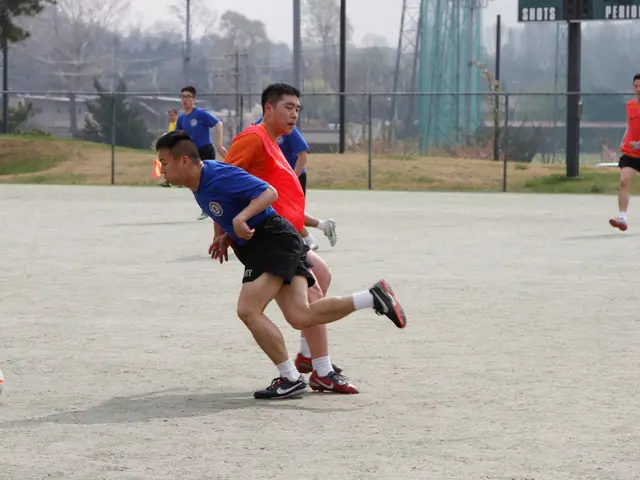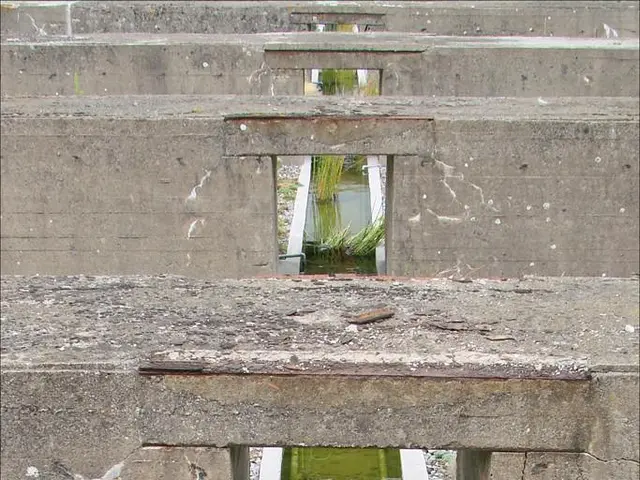Parental Ambition versus Abuse: The Perilous Path of Being a Coach-Parent, as Experienced by Gjert Ingebrigtsen, Ted Beckham, and Mike Agassi
Harsh and Autocratic Coach Unveiled: That's how Henrik, Philipp, and Jakob Ingebrigtsen described their father, according to an op-ed they penned in 2023. Two years later, the 59-year-old man—charged with "intrafamily violence"—was acquitted by Norwegian justice on Monday, June 16, but received a 15-day prison sentence, suspended, for acts of violence against his daughter Ingrid (18), a former Norwegian athletics hopeful who had left the family home at 15.
As the Ingebrigtsen brothers acknowledged, their reaction wasn't one of disappointment but surprise. Mette Yvonne Larsen echoed their sentiments. The prosecution had requested 2.5 years in prison against the family patriarch, mid-May. However, the father had consistently denied accusations of physical and psychological abuse reported by his two children spanning from 2008 to 2022.
Historically, sport has seen its fair share of parent-coaches behaving abusively. Case in point: Jim Pierce, father of tennis player Mary Pierce, and Ted Beckham, father of soccer sensation David Beckham. "Combining the role of parent and coach is incredibly difficult," contends Philippe Salas, a psychologist specializing in high-performance athletes. "When you're a parent without being a coach, it's not always easy to listen to your child's voice. Then, listening to it when you yourself have an interest in the child doing this or that thing, it's really complicated," he adds.
A "Toxic Cooperation" between Parent and Child
Although it may seem natural for a parent to coach their child, especially when they themselves were athletes and "not satisfied with their own career," points out Philippe Salas, the situation is anything but simple. Mike Agassi, former boxer who participated in the Olympics in 1948 and 1952, even went so far as to invent a ball-throwing machine to mold his son, Andre, into one of the greatest tennis players of all time. "My father told me that if I hit 2,500 balls a day, that means I'll hit 17,500 each week and almost a million in a year. And a child who hits a million balls in a year will become unbeatable," Andre Agassi recounted in his 2009 autobiography, Open.
The story of Andre Agassi serves as a reminder of Swiss Timea Bacsinszky's experience. "Because my father was my coach when I was a child, I didn't have a choice but to play," she admitted to the New York Times in 2015. "He wanted to live his dream through me, and unfortunately for me, I was really good. But I think that if I played well, it was because I knew that if I lost, it would cause drama at home between my parents."
In families where one of the parents is also the coach, a "toxic cooperation" often arises, explains Philippe Salas. "Out of love, the child does something they don't really want to do because it pleases the parent and they're looking for their love," the psychologist elaborates. It's not so hard to believe then, that Andre Agassi confessed to hating tennis, despite his illustrious career.
Severe Consequences for the Athlete and Their Mental Health
Should athletic performances meet expectations, the relationship could still be dysfunctional and negatively impact the child's mental health. "Many are depressed, depressed because, in addition to managing their own lives, they have to support the parent’s project without the possibility of opposing it," the psychologist assesses. Traumatized by her childhood that she compares to "hell," Timea Bacsinszky acknowledges having undergone therapy to overcome her pain.
In the long run, the consequences are manifold, from the child discontinuing their sporting career to distancing themselves from their tyrannical coach. A decision made by the former world number 9, although her "father" had publicly apologized in the Swiss press in 2015. "I never wanted to hurt you, but I may have been more of a coach than a father," he defended himself. "Unfortunately, I didn't find the balance between the rigor of a sporting education and the flexibility and tenderness of the father’s role. The relationship between a father and his daughter should never be confused with that of a coach and his player."
Although not exclusive to tennis, the issue of abusive parent-coaches particularly affects individual sports, especially those requiring face-to-face interaction. In these disciplines, parents can more easily intervene in their child's athletic training than in team sports where clubs or teammates often act as barriers. Even a few minutes at amateur stadiums is enough to witness parents transforming into coaches. A double role that is often risky to assume.
- In light of the Ingebrigtsen family's circumstances, it might be prudent to consider the potential challenges in a situation where a parent is also a coach in the realm of health-and-wellness fields such as mental-health or parenting, given the complex dynamics it can foster.
- The health-and-wellness field is not immune to the dangers of parents who assume both coaching and parental roles, as noted by the story of Andre Agassi, a prominent tennis player whose father's coaching approaches had severe consequences for his mental health.
- The integration of parenting and coaching can lead to a "toxic cooperation" in certain instances, as seen in the life of Swiss tennis player Timea Bacsinszky, who discontinued her sporting career following years of psychological trauma caused by her father-coach's demanding and abusive behavior.








